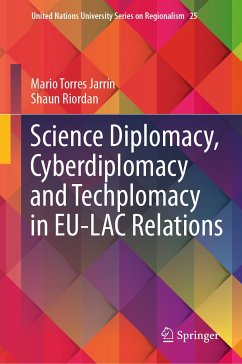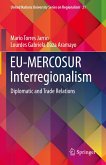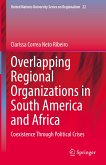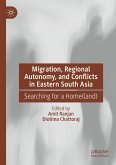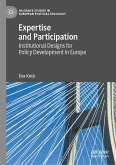This book explores collaborations between the European Union (EU) and the CELAC (Community of Latin American and Caribbean States) in science diplomacy, as well as the related areas of cyberdiplomacy and techplomacy. It focuses on how interregional collaboration could strengthen societal resilience in both LAC and EU member countries and contribute to realising the SDGs and Agenda 2030 objectives. The book explores the history of EU relations with LAC, and provides a conceptual basis for science diplomacy, including cyberdiplomacy and techplomacy, in the context of international relations and diplomacy studies. It highlights how COVID-19 has accelerated pre-existing trends in diplomacy in EU and LAC, forcing diplomats online and making them confront scientific and technical issues as core parts of foreign policy agendas and future pandemic preparedness. The book also examines the role of science diplomacy between these regions in relation to the climate change debate and reflects on whether the EU-LAC collaboration in science and R&D can be taken to a policy level. It provides suggestions on ways in which the CELAC and the EU could collaborate, both in promoting a rule-based cyberspace and in strengthening digital resilience; and situates this collaboration in the broader geopolitical, scientific and technological environments.
Authored by experts in this field, this highly topical book is of interest to a wide readership interested in diplomacy studies, public policy, international relations, regionalism, and S&T studies.
Dieser Download kann aus rechtlichen Gründen nur mit Rechnungsadresse in A, B, BG, CY, CZ, D, DK, EW, E, FIN, F, GR, HR, H, IRL, I, LT, L, LR, M, NL, PL, P, R, S, SLO, SK ausgeliefert werden.

